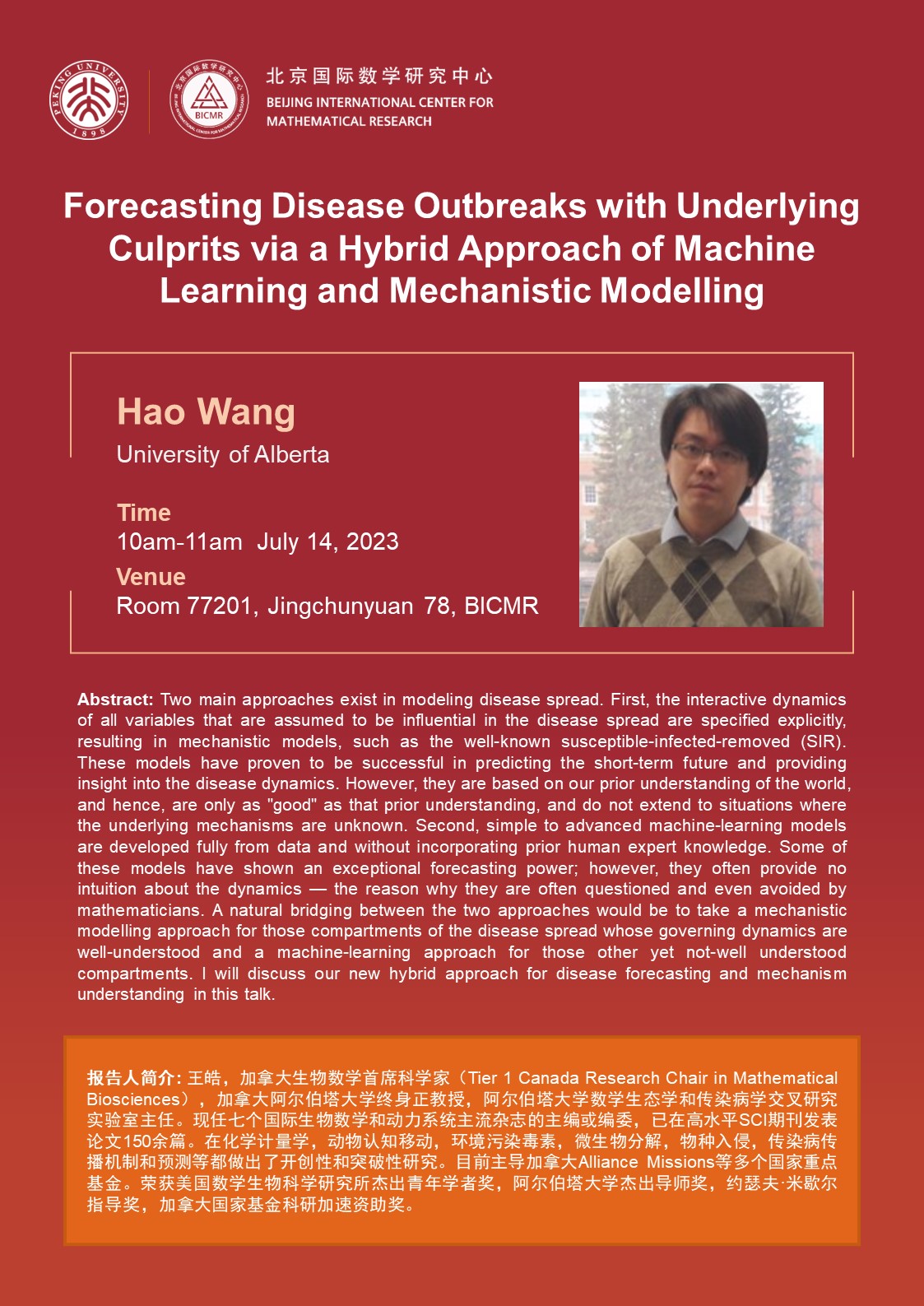Forecasting Disease Outbreaks with Underlying Culprits via a Hybrid Approach of Machine Learning and Mechanistic Modelling
Time: 2023-07-06
Published By: Wenqiong Li
Speaker(s): Hao Wang (University of Alberta)
Time: 10:00-11:00 July 14, 2023
Venue: Room 77201, Jingchunyuan 78, BICMR
Abstract: Two main approaches exist in modeling disease spread. First, the interactive dynamics of all variables that are assumed to be influential in the disease spread are specified explicitly, resulting in mechanistic models, such as the well-known susceptible-infected-removed (SIR). These models have proven to be successful in predicting the short-term future and providing insight into the disease dynamics. However, they are based on our prior understanding of the world, and hence, are only as "good" as that prior understanding, and do not extend to situations where the underlying mechanisms are unknown. Second, simple to advanced machine-learning models are developed fully from data and without incorporating prior human expert knowledge. Some of these models have shown an exceptional forecasting power; however, they often provide no intuition about the dynamics — the reason why they are often questioned and even avoided by mathematicians. A natural bridging between the two approaches would be to take a mechanistic modelling approach for those compartments of the disease spread whose governing dynamics are well-understood and a machine-learning approach for those other yet not-well understood compartments. I will discuss our new hybrid approach for disease forecasting and mechanism understanding in this talk.
报告人简介:王皓,加拿大生物数学首席科学家(Tier 1 Canada Research Chair in Mathematical Biosciences),加拿大阿尔伯塔大学终身正教授,阿尔伯塔大学数学生态学和传染病学交叉研究实验室主任。现任七个国际生物数学和动力系统主流杂志的主编或编委,已在高水平SCI期刊发表论文150余篇。在化学计量学,动物认知移动,环境污染毒素,微生物分解,物种入侵,传染病传播机制和预测等都做出了开创性和突破性研究。目前主导加拿大Alliance Missions等多个国家重点基金。荣获美国数学生物科学研究所杰出青年学者奖,阿尔伯塔大学杰出导师奖,约瑟夫·米歇尔指导奖,加拿大国家基金科研加速资助奖。



